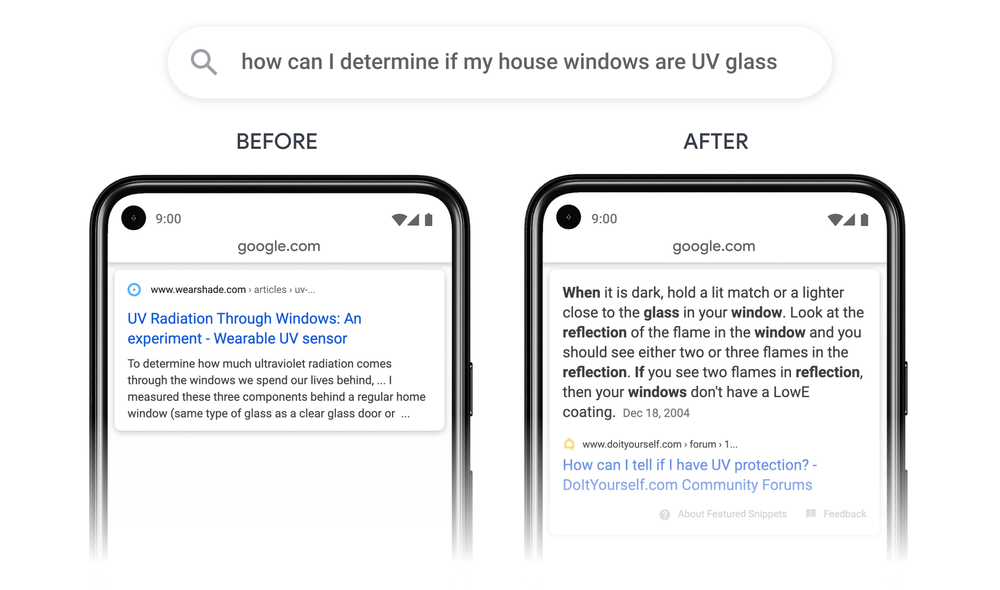How Google’s passage indexing benefits SEO, UX and content strategy #
TLDR #
- Google will start ranking individual passages from pages.
- Pages with a relevant passage may rank for a query, even if the page as a whole isn’t the most relevant.
- Content professionals can focus on writing and organising information for users, not crawlers.
Google recently published a story about using AI to make search results more powerful. Soon, they’ll better decipher misspelled words, identify relevant passages and recognise sub-topics. It’s an exciting peek into how natural language processing helps humans and computers speak the same language. Best of all, it may remove a serious constraint of writing for the web.
Because robots and humans parse information differently, we compromise when we write for both. Robots need clearly labels and topics but human preferences aren’t so simple. In fact, we often change what we want on a whim. This makes search engine optimisation a point of friction between content and marketing teams. Unfortunately, the more influential search engine rankings have become, the more we’ve had to accommodate crawler’s needs in our content strategies. Even the best content is useless if nobody can find it.
Google’s updates may turn the tide. Soon Google will assess whether individual passages are the most relevant for a query, — even if the whole page isn’t. This should benefit around 7% of searches once rolled out, increasing as users acclimatise to making more natural searches.

By understanding individual passages, Google can tell when a specific passage (After) is more relevant than a broader page on the same topic (Before).
This will end the trade-offs we’ve become accustomed to in search of ‘topical authority‘ and ‘Featured Snippets’. For example, rather than being coerced into creating a new page each for each facet of a topic, copywriters, IAs and SEOs can compose content in the way most appropriate for their audience and subject. without worrying that search crawlers will get confused.
There’s no one-size-fits all way of writing for people. Sometimes long-form explorations are better, sometimes it’s better to be brief. Either way, passage indexing gives back the power to choose.